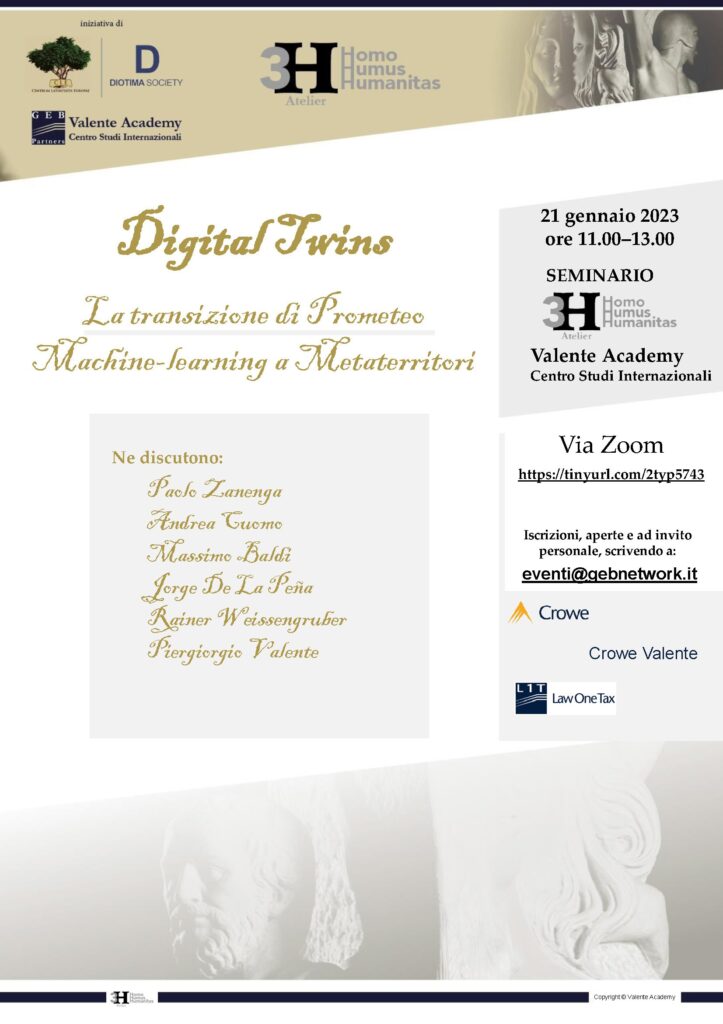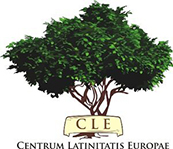- 21 January 2024
The seminar “Digital Twins” explored central themes related to digital evolution and how artificial intelligence (AI) and machine learning are transforming our relationship with reality and the world of work. Through a series of interventions, scholars and professionals analyzed the growing interdependence between humans and technology, the economic and social consequences of automation, and changes in the perception of truth and knowledge.
Paolo Zanenga: The Challenge to Western Dualism
Zanenga opened the seminar by questioning the traditional dualism in Western thought between subject and object, theory and practice, software and hardware. With the advancement of neuroscience, it becomes evident that humans not only perceive reality but actively create it by interacting with their environment. This phenomenon is reflected in the digital realm: the individual becomes both the subject and the object within the network.
Andrea Cuomo: The Replacement of Human Labor
Cuomo highlighted how the rise of AI and robotics is making human participation in productive labor increasingly unnecessary. One of the primary reasons for this transition is economic: companies prefer to invest in machines that can be purchased as capital goods (capex), thus avoiding the operational costs (opex) associated with human workers. This economic choice drives automation and leads to the inevitable reduction of human labor roles.
Massimo Baldi: The Inaccessibility of Decision-Making Processes
Baldi emphasized that in the digital age, processes for understanding the world no longer follow linear patterns or models comprehensible to humans. AI identifies complex patterns that are inaccessible to the human eye, generating a sense of disorientation and discomfort. Individuals in the 21st century thus experience an increasing distance from the results produced by machines, feeling increasingly excluded from decision-making processes.
Luca Bagetto: The Horizontalism of Digital Truth
Bagetto introduced Giambattista Vico’s concept of “verum ipsum factum” to explain how, in the era of AI, truth is seen as an immediate and contingent fact, always evolving. This horizontal approach deprives deeper dimensions, such as politics and human relationships, reducing the concept of truth to an act without verticality.
Jorge De La Peña: New Responsibilities for Supply and Value Chains
De La Peña discussed the impact of AI on supply chains and value chains, emphasizing how automation can improve products and services to meet the needs of customers and suppliers. However, this innovation requires responsible management, with a focus on sustainable and transparent strategies to ensure efficiency and satisfaction among business partners.
Piergiorgio Valente: The Co-Evolution of Humans and Businesses
Valente closed the seminar by reflecting on how the co-evolution of humans and businesses is limited by labor automation. The interconnection between machines, without additional costs, reduces the need for human labor. This has significant fiscal implications, as companies can reduce operational costs but lose the human contribution, transforming work into technical capital rather than a human resource.
The “Digital Twins” seminar provided a critical analysis of the ongoing transformations driven by artificial intelligence and robotics, shedding light on changes in the perception of reality, work ethics, and truth. The digital transition proves to be complex and ambivalent, offering new opportunities but also presenting profound challenges for individuals and society.





